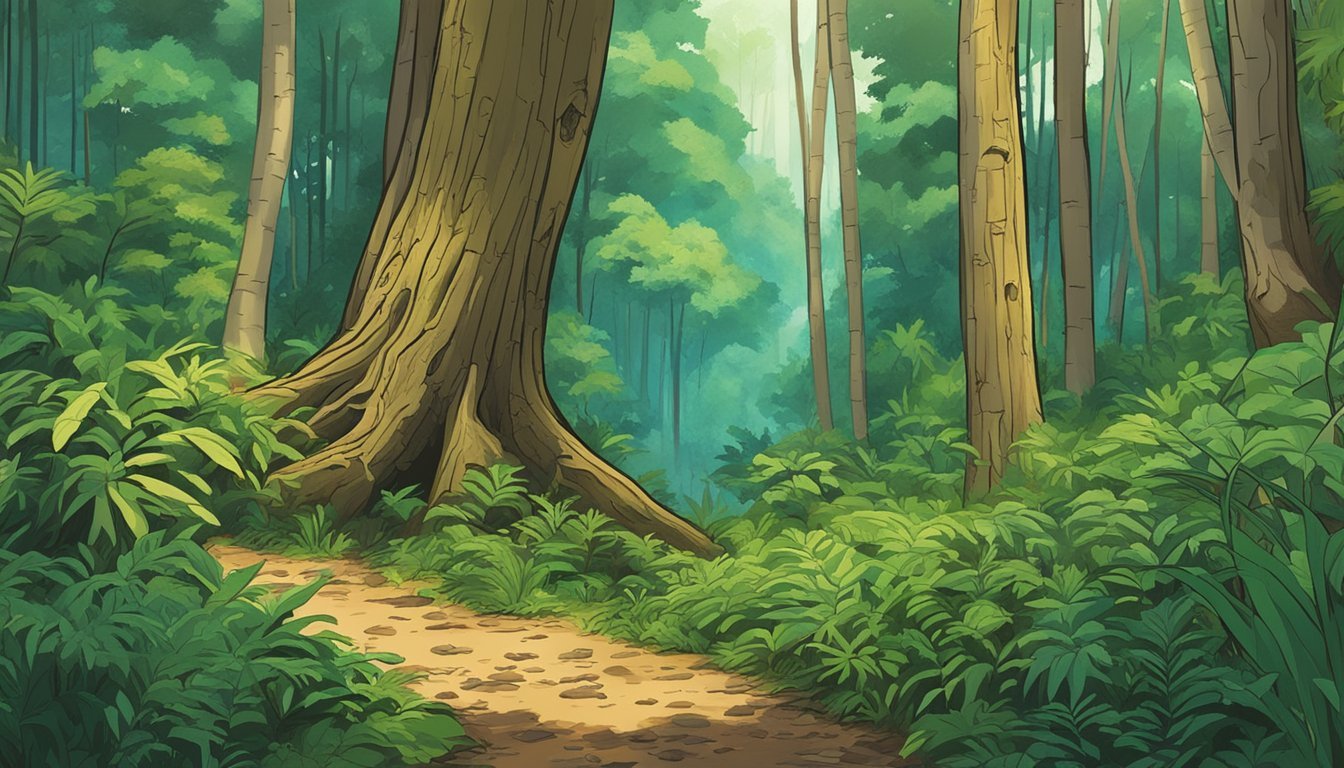
In Hong Kong, the poaching of agarwood trees is escalating alarmingly, fueled by an increasing demand in the black market. The forests in this vibrant metropolis are home to several vital species used in producing incense, perfumes, and traditional Chinese medicine.
Illegal Logging and Conservation Efforts
During a recent trek through nearby woodlands, geneticist Zhang Huarong stumbled upon evidence of illegal logging — numerous incense trees had been cut down. These forests, nestled close to the city’s bustling heart, are vital providers of the highly prized agarwood, valued for its use in luxury fragrances and medicinal practices.
Zhang is part of a dedicated team working to tackle this pressing environmental issue. His group is collecting DNA samples from different agarwood species to compile a detailed genetic database. This resource aims to empower law enforcement to combat illegal logging and bolster conservation efforts for these critical trees.
A stark increase in the illegal harvesting of incense trees in Hong Kong was reported in 2023, with instances rising an astonishing twelve times compared to the previous year. Dubbed “black gold,” high-quality agarwood can fetch prices up to $10,000 per kilogram, making it a lucrative target for poachers.
The International Union for Conservation of Nature (IUCN) has classified the Chinese Agarwood as “vulnerable,” citing logging and wood extraction as key threats to its dwindling populations. To combat these challenges, Zhang and his colleagues have scoured the dense jungles of Hong Kong in search of hidden incense tree populations. Local community members have also taken an active role, working hard to protect their forests and contribute valuable data to the agarwood database.
Community Engagement and Genetic Research
Collaboration with residents of rural villages is particularly crucial, according to Zhang. Villagers share their knowledge of existing agarwood trees, while researchers offer scientific insights. This dual-purpose database not only aids law enforcement in preventing illegal logging but also enriches researchers’ understanding of the species’ evolutionary potential.
Through their research, the team has identified distinct genetic groups within Hong Kong, showcasing the rich genetic diversity necessary for sustaining healthy wild populations of agarwood. This diversity is essential in building resilience against environmental challenges, including climate change and intensified logging activities.
With this genetic information at hand, conservationists are well-equipped to make informed choices about which agarwood trees to transplant from nurseries into the wild. Law enforcement can use the database to trace the origins of confiscated agarwood, ensuring it does not come from protected species.
Challenges and Future Actions
In the retail sector, shop owner Aaron Tang stresses the importance of sustainably sourced products. His offerings range from intricately carved trinkets to fragrant oils derived from agarwood, all of which come from controlled environments. Through workshops on crafting traditional joss sticks, he also raises awareness among participants about the risks of unknowingly purchasing illegally sourced materials, reinforcing the need to preserve Hong Kong’s cultural heritage linked to agarwood.
However, the methods employed by illegal agarwood producers often involve harmful practices. David Lau, a scientist from the Chinese University of Hong Kong, highlights that these poachers make deep cuts into trees to hasten resin production before they ultimately fell them.
A local government representative noted that measures have been implemented to monitor key incense tree populations, including regular patrols in critical areas. They reported a decline in illegal logging since 2018, attributing this to enhanced protective measures like the installation of metal cages and surveillance around at-risk trees.
Despite these efforts, horticulturist Paul Melsom cautioned that this drop may reflect a dwindling population of trees, making them less accessible to poachers. The illegal trade remains a persistent problem. In a notable operation last year, customs officials confiscated one tonne of agarwood, marking the largest seizure in two decades, valued at approximately $2.3 million.
Melsom expressed deep concern over the drastic decline of incense trees in many of Hong Kong’s forests. For more than a decade, he has been secretly planting new trees in hopes of replenishing this vital resource, driven by a sense of urgency as he witnesses the alarming rate at which these trees are vanishing.
Source: Premiumbeautynews

